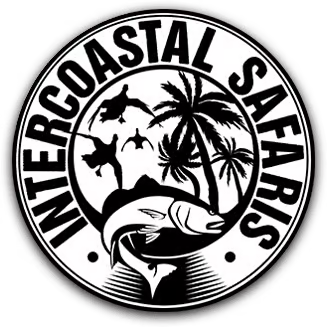Charter Fishing Lingo 101
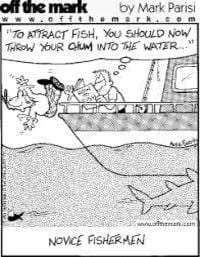
Have you ever called to book a fishing trip and assumed that the person on the other end of the phone knew exactly what you wanted? This can prove to be problematic for both parties if both sides don’t get it right. Don’t fret, simply continue reading for frequent charter fishing lingo and a few helpful tips.
INSHORE FISHING
While in the minds of most this means “bay fishing”, technically speaking it’s any fishing that takes place in waters up to 30 meters deep. This consists of areas within 9 miles from shore such as near beaches, estuaries, bays, Intercoastal waterways, waters around piers and jetties, and along saltwater flats. When one wants to fish in the Gulf but be in site of land (a common request among vacationers) you may want to refer to that as “nearshore”.
Tip: Inshore fishing is a great an option for families with smaller children and first timers. These trips tend to stay in calm protected waters and remain within a relatively short drive to land.
OFFSHORE FISHING
Commonly referred to as “deep sea fishing”. Offshore fishing is done more than 9 miles from the shoreline in waters that are hundreds or even thousands of feet deep. Offshore fishing is where bigger trophy fish such as blue marlin, sailfish, tuna, and mahi mahi are caught.
Tip: These trips usually take a least 8 hours. They are best suited to accommodate larger parties. Bigger fish can take a long time to get in the boat. It will be a fight. Bring some water (not just beer) and take dramamine, just in case.
TROLLING
This is a method of fishing where one or more lines, baited with lures or bait fish, are pulled slowly behind the boat.
Tip: Trolling is usually done while heading out to your location and while returning. This gives you a chance to catch fish that are on the move.
BOTTOM FISHING
This fishing technique is used to catch fish that are found near the sea floor. This is the only type of fishing you will find on a head/party boat.
Tip: This is how you will catch Red Snapper. You can also catch other fish such as grouper and amberjack because they tend to stay near reefs and shipwrecks.
HEAD
The head is simply a bathroom on a boat.
Tip: Not all boats have a head/bathroom. Don’t be afraid to ask your Captain about these ahead of time. Along these lines keep in mind that before you get on a boat is the time to ask questions in case you don’t like the answer.
TURN ON THE AC
This means go fast and cool off with the breeze. This term is used quite often in the summer abroad center consoles.
Tip: Like bathrooms not all boats have air conditioners. If you start to get to hot ask your Captain to “turn on the ac” but make sure you are ready to ride.
DECKHAND
This is a person who works on the back of larger boat.The deckhand is responsible for the cleanliness and maintenance of the boat, setting up fishing gear assisting client during fishing trip, cleaning fish, and other miscellaneous duties.
Tip: Don’t forget to tip the deckhand on your trip around 20%. They work hard (for tips) to provide you will as much assistance as they can.
CAPTAIN
A person licensed and trained to carry paying customers on a boat. They have to undergo difficult credentialing exams and be approved by the US Coast Guard.
Tip: Our Captains are outgoing, very knowledgeable, and strive to provide you with a great experience. Important to us that we provide you with the best possible fit for your needs. Always state the purpose of your trip when booking so the perfect match can be made.
If you are interested in fishing opportunities with Intercoastal Safaris, please call our hospitality desk at 850-370-2223 or book a trip now!
Written by: Ashley Conway
